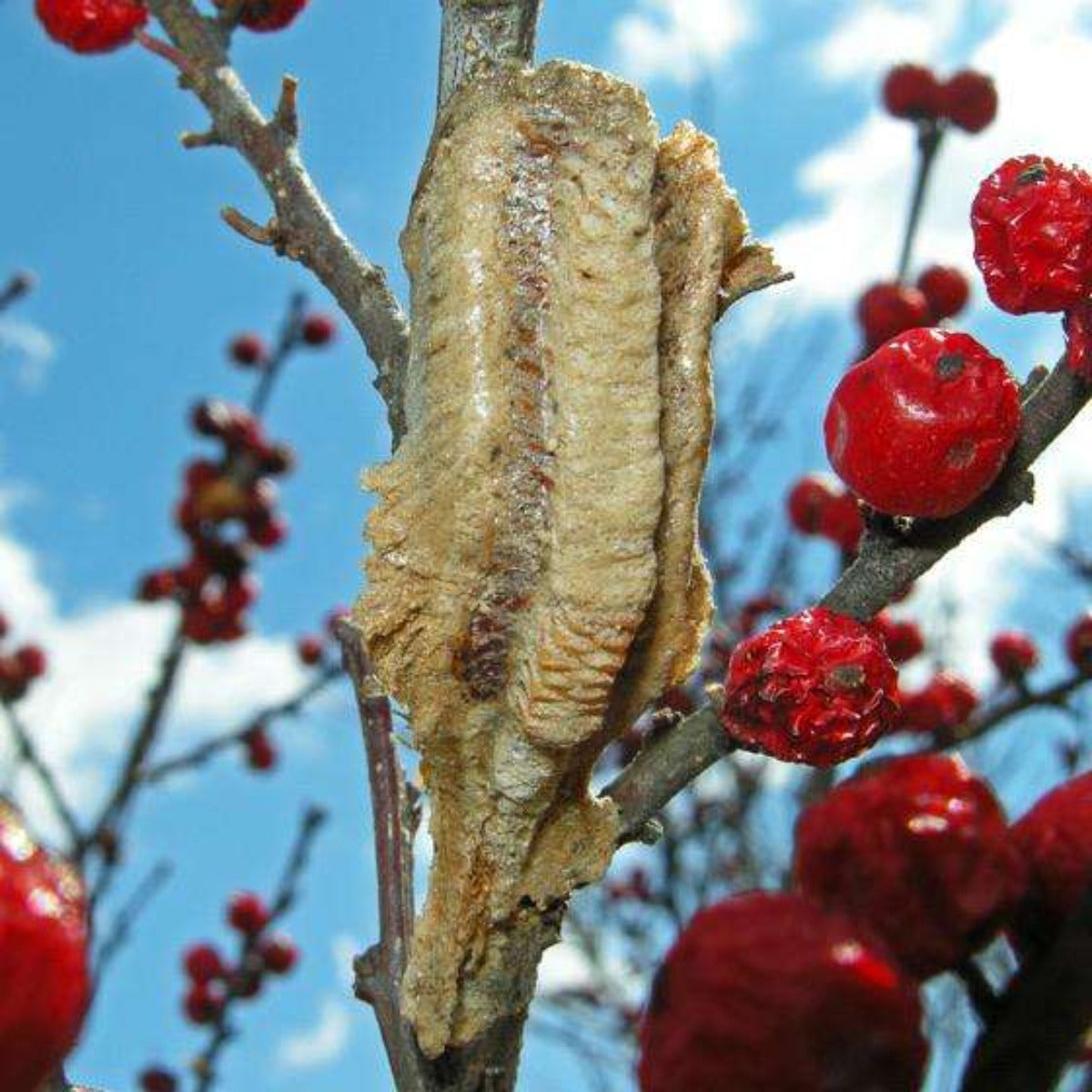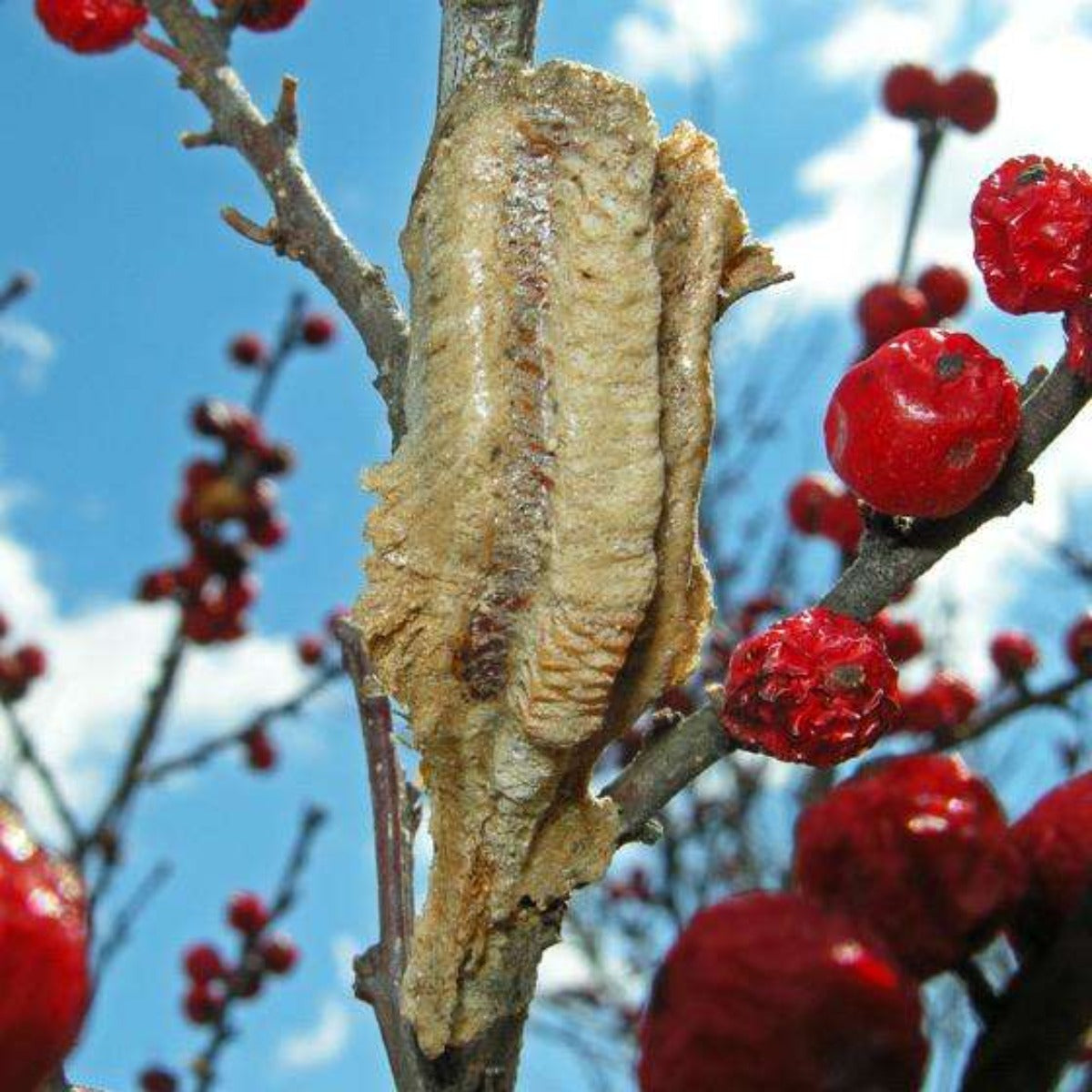
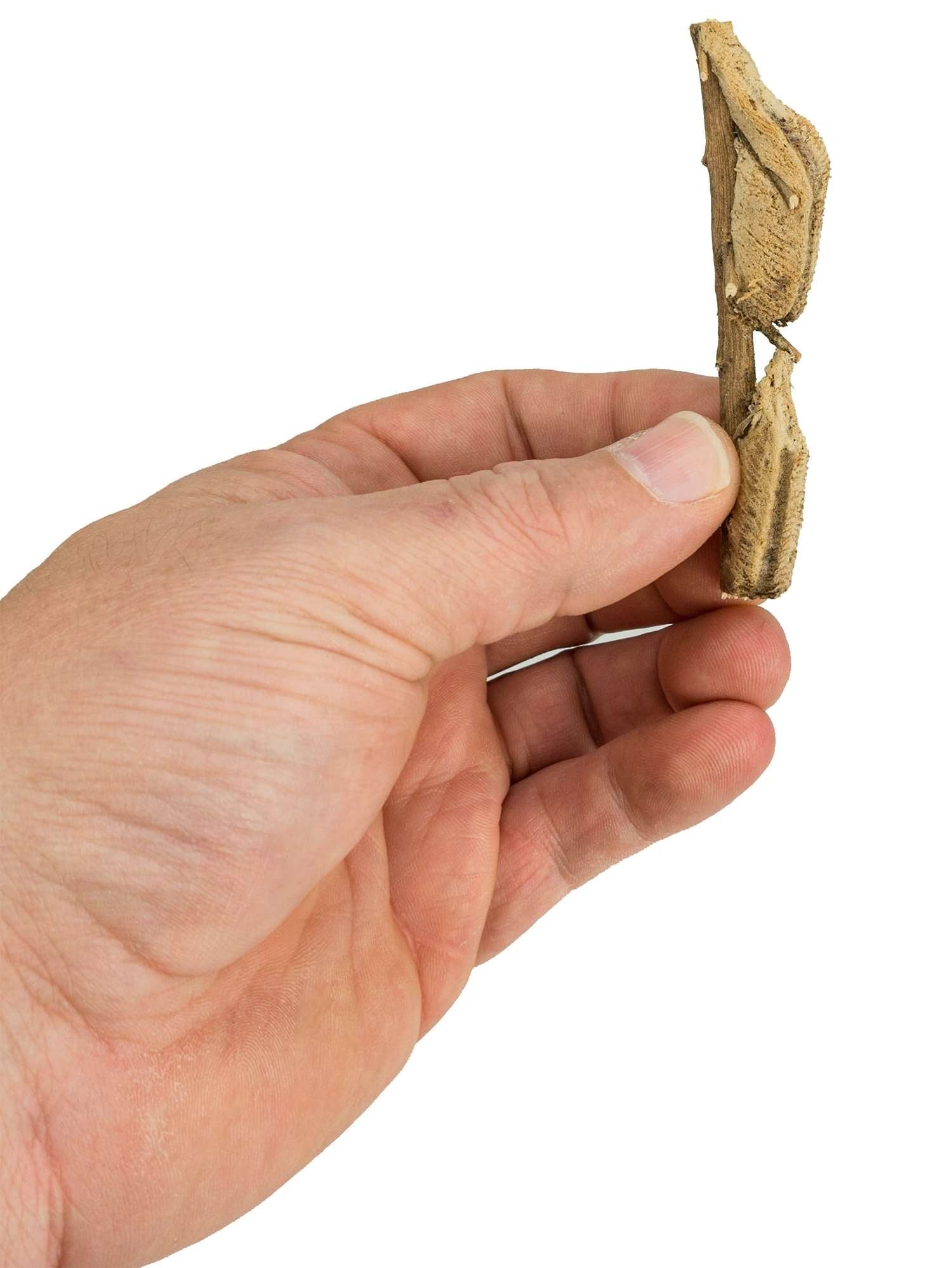
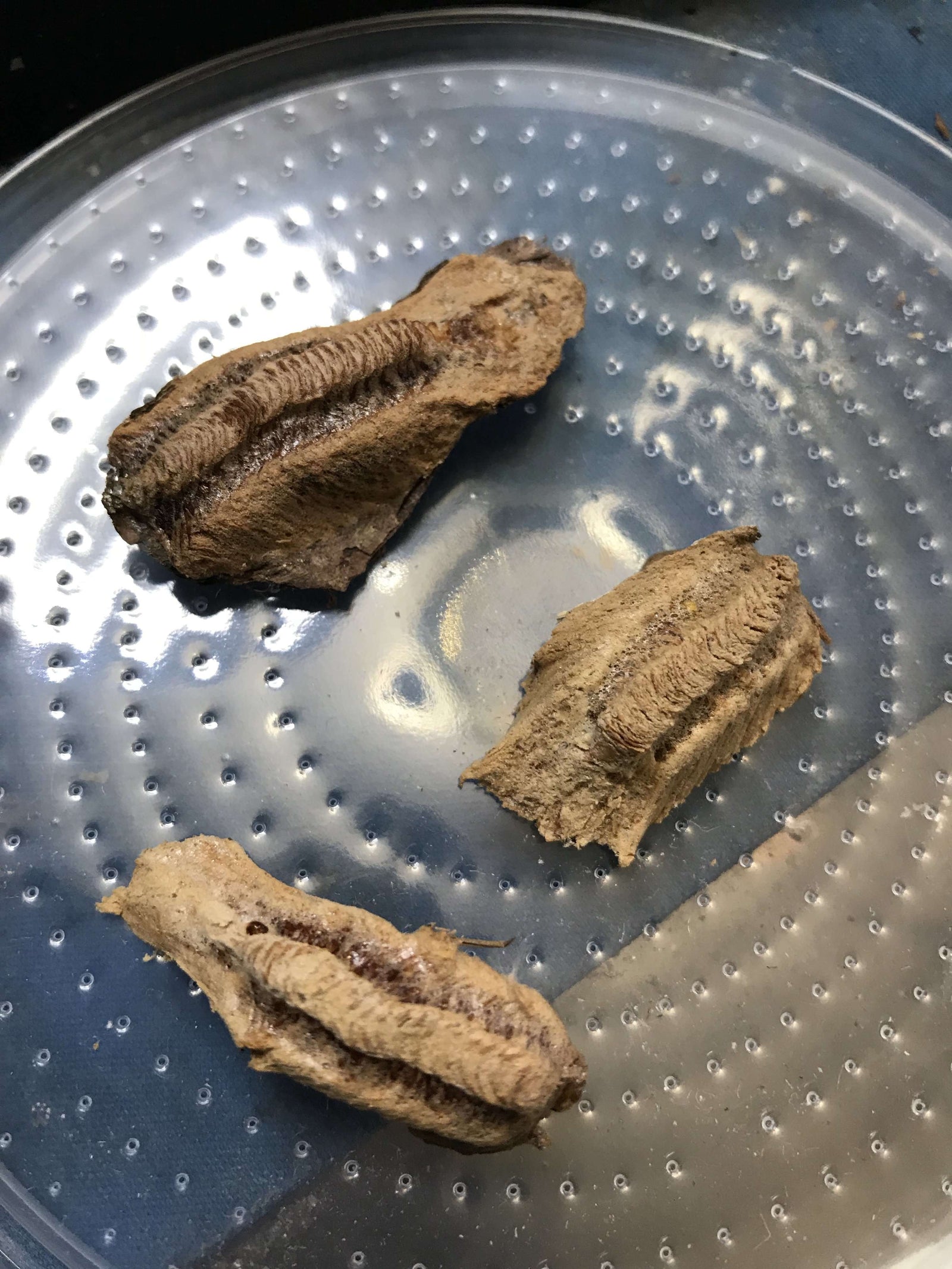
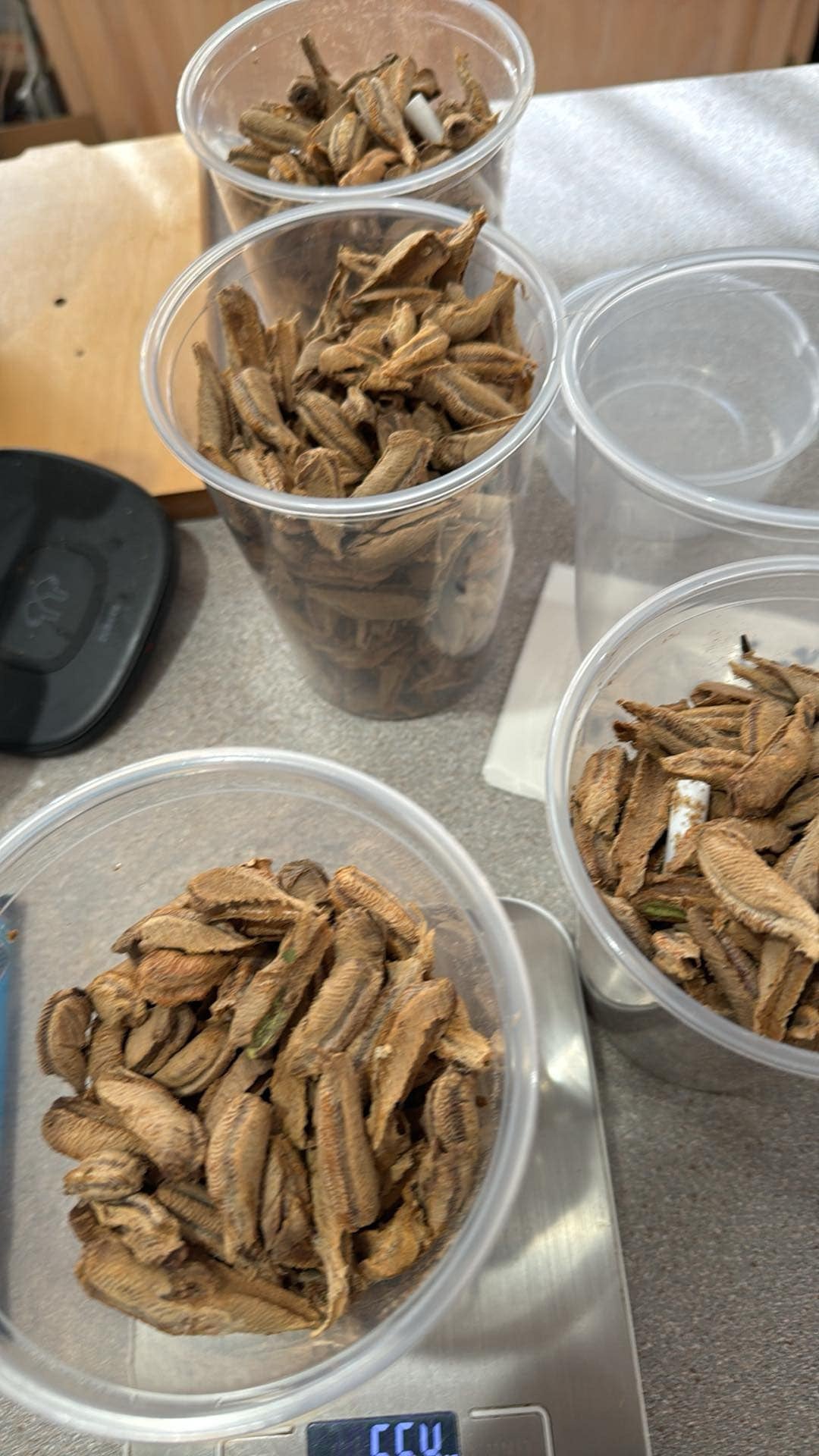
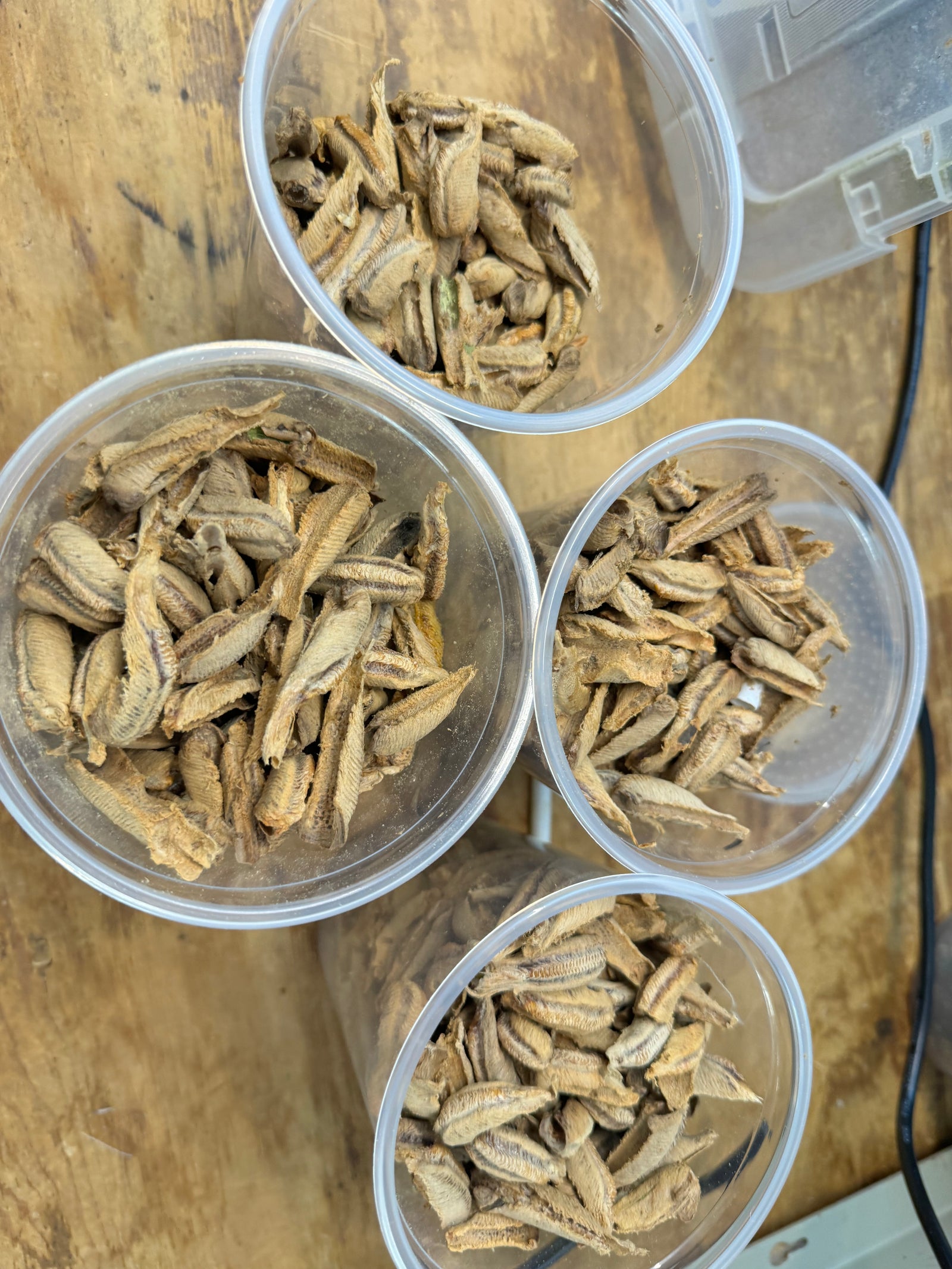
Carolina Mantis Ooths, Stagmomantis carolina
$22.00 - $3,500.00$0.00
Each extra-large Carolina Praying Mantis Egg Case from USMantis contains 50-200+ baby Carolina Praying Mantids (Stagmomantis carolina), just waiting to hatch out! USMantis sends you a fertile egg case! Carolina Praying Mantids are an ideal way to control insect pests in the garden without harmful chemicals—a single praying mantis will eat hundreds of insects per season. Praying mantids are also easy to keep as pets.
The Carolina Praying Mantis is a medium to large mantis reaching 50-65mm long. Adult males have full-size and fully functional wings. The adult females have wings that are ¾ the length of the body and are not functional. The color of the adults varies by individual from brown to yellow-green.
Grab the USMantis Mantis Rearing Kit for all the supplies you need to hatch and raise these little critters!
Typically, praying mantis egg cases will hatch within 3-10 weeks. If you wish to delay hatching, keep the egg case in a refrigerator in a non-airtight container, then remove it 1-2 months before you want it to hatch. Please keep in mind that a very low percentage of praying mantis egg cases may be infertile -
Most customers wish to introduce beneficial praying mantids into their gardens or yards for pest control. If this is the case, attach the egg case (also known as an ootheca) to a protected, stable surface with the 'gills' or "zipper side" oriented downward. The egg case can be attached using a zip tie or some twine. An excellent example of this would be attaching the egg case to a tomato plant cage or fence. Alternatively, the egg case can be hatched indoors, and the baby mantids released into your yard after they hatch.
If you wish to keep some praying mantids as pets, USMantis recommends setting the egg case up so it can hatch indoors. The praying mantids may often hatch and leave the egg case in less than 24 hours - it's easy to miss them! Using a 32oz insect cup with a vented lid, we make 2 slits in the lid and run a zip tie through it, using it to secure the egg case to the lid so that the 'gills' are facing downward. In the bottom of the cup, we place a couple of layers of paper towel. Add a bit of water to the paper towel every few days to keep it moist and raise the humidity in the insect cup. Expect the egg case to hatch in 3-10 weeks. It would be best to have a temperature of 75-80F and a humidity of 50%. We cannot guarantee ooths to hatch, though we do know they are fertile when shipped.
Once the praying mantids hatch, offer food within 24 hours, or they may start eating each other! We recommend releasing the bulk of them outside and housing the mantids you wish to raise individually in 32-oz insect cups with vented lids. Keep a thin layer of paper towel on the bottom, and provide a few thin sticks or twigs for the praying mantis to climb and perch on. Spray the cup lightly with water every 1-2 days.
From hatching on to about four weeks of age, the praying mantids can consume hydei fruit flies, which are very easy to culture with a USMantis Fruit Fly Culturing Kit. After the mantid outgrows the fruit flies, feed larger flies like USMANTIS blue bottle flies. Feed 2-3 flies every few days. If flies are still present in the Insect Cup at the time of feeding, skip a feeding. Crickets are also a standard to feed mantids when they are an adult, make sure you are feeding them banded crickets and not house crickets to avoid giving your mantids any diseases or viruses.
THESE OOTHS HAVE BEEN FRESHLY HARVESTED FROM AN INSECTICIDE-FREE ORGANIC SIGHT HERE IN THE USA.

